
Wageningen UR is a collaboration between Wageningen University and the DLO research institutes. Wageningen UR (University and Research Centre) has a staff of 6,500 and provides education and research facilities for 10,000 students from over 100 countries. Inspired by its mission ‘To explore the potential of nature to improve the quality of life’, Wageningen UR is active in the domain of healthy food and living environment for governments and the business community-at-large. The strength of Wageningen UR lies in its ability to join the forces of specialised research institutes and Wageningen University. It also lies in the combined efforts of the various fields of natural and social sciences. This union of expertise leads to scientific breakthroughs that can quickly be put into practice and be incorporated into education.
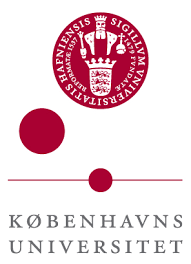
The University of Copenhagen (UCPH) is the largest research and education institution in Denmark and Scandinavia with 40,866 students and 9,272 employees. The university has 6 faculties and around 100 departments and research centers spread over 929,512 m2 with an annual budget of over €1 billion. UCPH is ranked as best 5 in Europe and 37th in the world (Leiden Ranking, 2013).
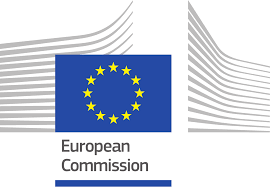
As the Commission’s in-house science service, the Joint Research Centre’s mission is to provide EU policies with independent, evidence-based scientific and technical support throughout the whole policy cycle. Working in close cooperation with policy Directorates-General, the JRC addresses key societal challenges while stimulating innovation through developing new methods, tools and standards, and sharing its know-how with the Member States, the scientific community and international partners.
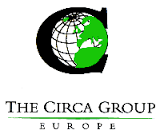
The CIRCA Group Europe is an international consulting company, specialising in the application of science, technology and innovation at the company, regional, national and European levels of the economy. The CIRCA Group contributes to the Smart Economy by developing and adapting science, technology and innovation solutions that can be implemented at the company, regional, national and European levels.

Plant Research of Wageningen University and Research specialises in strategic and applied plant sciences. Research fields are genetics and reproduction, genomics, proteomics, metabolomics, bioinformatics, crop protection, crop ecology and agrosystems. Combined knowledge and experience in these fields provide for a unique range of products and perspectives for government and industry. Plant Research serves the entire agro-production chain, with scientific products from DNA level to concepts for complete production systems. The products of Plant Research enable governments to further develop and execute policies for a sustainable economy, hence the mission ‘For the quality of Life’.
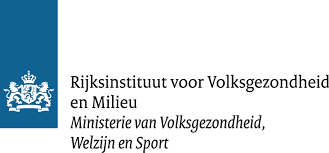
The National Institute for Public Health and the Environment (Rijksinstituut voor Volksgezondheid en Milieu ‐ RIVM) is a governmental research and knowledge institute providing policy support to the Dutch government. RIVM performs tasks to promote both public health, and a healthy and safe living environment. The main tasks of RIVM are: 1) to conduct research; 2) to provide policy support; 3) to perform national coordination; 4) to coordinate intervention programs; 5) to provide information to professionals and the general public. Our experts participate in various international networks and are members of many international scientific committees and experts panels of the EU. RIVM also carries out activities for other international organizations such as the World Health Organization (WHO) and OECD. Moreover, RIVM transfers knowledge specifically aimed at capacity and institution building in for instance pre‐accession countries and developing countries. RIVM’s commissioning bodies consist of ministries (Ministry of Health, Welfare and Sport, the Ministry of Infrastructure and Environment, the Ministry of Economic Affairs, Agriculture and Innovation) and various public services such as the inspectorates. RIVM is a recognized centre of expertise in the fields of health, infectious diseases, nutrition and food safety and environment and safety. RIVM experts publish around 800 scientific publications and reports per year. RIVM has a proven track record regarding the execution of EU funded projects. Currently RIVM participates in around 45 FP7 projects. Our researchers are members of more than 200 international experts committees of the EU, WHO, OECD and other international organizations and provide scientist advice for policy development. RIVM regularly performs research and provide advice to EU agencies such as EFSA, EEA, ECDC and EMA.
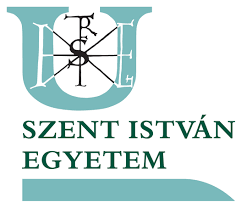
Szent István University (SZIU), one of Hungary’s most prominent institutions of higher education, consists of seven different faculties for study and research, hosting 16,000 students. SZIU is the major agriculture oriented university of the country. The participating department is part of the Institute of Environmental Sciences which is coordinating several national and international education programs and is very well equipped for environmental research.
The SZIU team hosted the LANDMARK Roundtable 3 past May 2016.
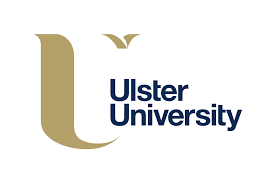
Ulster University (Ulster) is based on four campuses in Northern Ireland with a remit for teaching and learning, research and development, academic enterprise and outreach. It employs over 3,000 staff and has an annual turnover of more than £200million. In 2013/14, over 28,700 students were enrolled on Ulster courses. Academic activity is organised around six Faculties sharing thirty-eight Schools, including the School of Geography and Environmental Sciences on the Coleraine campus.
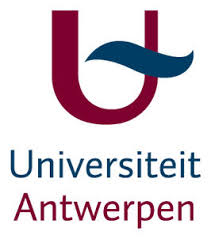
The University of Antwerp (Dutch: Universiteit Antwerpen) is one of the major Belgian universities and located in the city of Antwerp. It is characterised by its high standards in education, internationally competitive research and entrepreneurial approach. The university was founded in 2003 after the merger of the three universities that were previously known as RUCA (State University Centre Antwerp), UFSIA (University Faculties Saint Ignatius Antwerp) and UIA (University Institution Antwerp). Hence, the university’s roots go back to 1852. The University of Antwerp has approximately 20,000 students and is still increasing, which makes it the third largest university in Flanders. In order to face the challenges posed by the internationalization of European education and research, the University is part of the Antwerp University Association (AUHA). The ecosystem management research group (ECOBE) resides under the biology department at the University of Antwerp. The entire biology department has over 600 researchers and many advanced lab facilities.
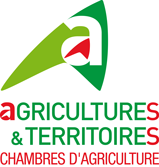
The French Chambers of Agriculture are self-governing public bodies, managed by elected representatives. Their role is on the one hand to represent the farmers and foresters to local and national authorities and on the other hand to offer a broad range of services to farmers, foresters and rural stakeholders. They work as a decentralized network comprising 86 Chambers of Agriculture at “département” (=district) level, 13 regional Chambers of Agriculture, the national organization APCA and the academic institute UNILASALLE ( former ESITPA). The Chambers have 4 200 elected members and employ approximately 8 000 permanent staff.
The UNILASALLE & APCA team hosted the LANDMARK Roundtable 2 past November 2015.

The Chamber of Agriculture of Lower Saxony (CALS) is an agricultural administration and advisory institution in Lower Saxony working in the fields of agriculture, horticulture and forestry. The tasks are wide-ranging, including official appraisals, advice, research and professional training (agriculture, horticulture, forestry, dairy, farm and household economics, agro-tourism). The CALS is an independent, self-governed legal entity of public law and, commissioned by the federal State of Lower Saxony, responsible for compliance with more than 50 laws, regulations and funding programmes. To put the concept of self-government into daily practice the head offices and honorary office (elected representatives of professions and full-time professionals) work closely together. The highest decision-making body of the Chamber is the Chamber Assembly, which is reconstituted every six years. The Chamber of Agriculture of Lower Saxony employs about 2,500 members of staff, consisting of a wide range of experts, thus ensuring a high level of professional and multi-disciplinary competence (e. g., agronomists, foresters, geologists, geographers, biologists, legal experts and architects). The employees are located around Lower Saxony working in six departments (administration, subsidy programmes, agriculture, forestry, horticulture, LUFA Nord-West) at the head offices in Oldenburg and Hannover and in more than 26 agencies around Lower Saxony.
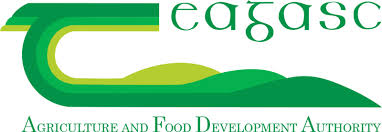
Teagasc is the national body providing integrated research, advisory and training services to the agriculture and food industry and rural communities. Its mission is to support science-based innovation in the agri-food sector and the broader bio-economy that will underpin profitability, competitiveness and sustainability. Teagasc employs 1,100 staff at 52 locations throughout Ireland, consisting of 216 research scientists, 51 specialists and specialist advisers, 116 research technicians and technologists, 171 support staff, circa 175 Walsh Fellows (PhD students) and over 250 advisors, college lecturers, technicians and education officers.
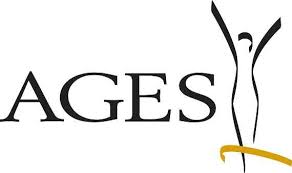
AGES is a government owned agency with public mission and research organisation attached to the Federal Ministry for Health and to the Federal Ministry of Agriculture, Forestry, Environment and Water Management. Key responsibilities of AGES are food safety, agriculture and food security, nutrition, food quality and public health. AGES employs 1,400 staff at 5 main locations.

INRA is the leading European agricultural research institute and one of the foremost institutes in the world for agriculture, food and the environment. It is also the second largest public research institute in France.
The research conducted at INRA concerns agriculture, food, nutrition and food safety, environment and land management, with particular emphasis on sustainable development.
Inra employs 1,800 researchers, 2,500 engineers, 4,000 technicians and administrative staff, nearly 2,000 PhD students and more than 1,800 foreign students and researchers at 18 regional locations.
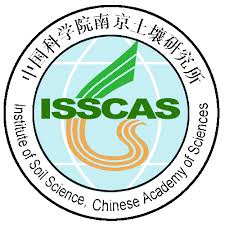
The Chinese Academy of Sciences is the linchpin of China’s drive to explore and harness high technology and the natural sciences for the benefit of China and the world. Comprising a comprehensive research and development network, a merit-based academic society and a system of higher education, CAS brings together scientists and engineers from China and around the world to address both theoretical and applied problems using world-class scientific and management approaches.
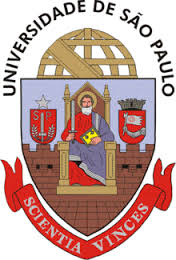
The University of São Paulo (USP, Universidade de Sao Paulo) is a public university, maintained by the State of São Paulo and affiliated with the State Secretariat of Economic, Scientific and Technological Development. Various world rankings, created to measure the quality of universities according to various criteria, particularly those related to scientific productivity, have widely recognized the talent and dedication of USP professors, students and employees.

ETH Zurich is one of the world’s leading international universities for technology and the natural sciences. It is well-known for its excellent education, groundbreaking fundamental research and for transferring its research results into practice. It offers researchers an inspiring working environment and its students a comprehensive education. Founded in 1855, ETH Zurich today has some 18,000 students from over 100 different countries, 3,800 of whom are doctoral students.
About 500 professors teach and conduct research in the areas of engineering, architecture, mathematics, natural sciences, system-oriented sciences, and management and social sciences.
The ETH team hosted the LANDMARK Roundtable 4 past November 2016.
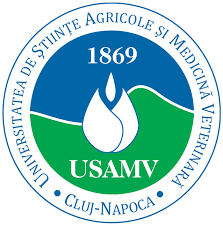
USAMV Cluj-Napoca is one of the most prestigious Life Science Universities in Romania. More than 2,000 students specialized in agriculture, horticulture, biotechnology & animal sciences, veterinary medicine and food science (5 Faculties) graduate, each year, from our university. The university has passed the national accreditation of ARACIS with the best appreciation, was evaluated twice by EUA and was recently classified in the top 12 best Romanian universities of advanced research and education. From the total staff of 550 employees, 257 are teachers, 78 research staff, 24 research assistants, 191 auxiliary teaching staff. In the academic year of 2013-2014 there were 4,983 students enrolled for undergraduate studies, 963 for master’s degree, 287 for PhD, 75 in postdoctoral programs and 826 students for long distance education. The research is conducted in 18 laboratories and 9 research centers.
The USAMV Cluj-Napoca team hosted the LANDMARK Roundtable 5 past May 2017.
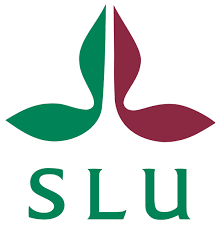
SLU is one of Sweden’s most research-intensive universities, charged with the task of developing sustainable management and use of biological natural resources. Education and research at the university spans a spectrum from genes and molecules to biodiversity, animal health, sustainable forestry, food supply, societal planning and sustainable urban and rural development, as well as global phenomena such as climate change and its effects.
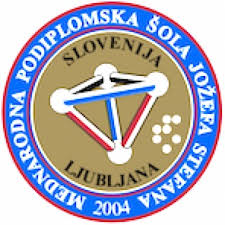
The Jožef Stefan International Postgraduate School (Mednarodna podiplomska šola Jožefa Stefana, MPS), founded in 2004, is a higher education establishment and a research organization. It employs about 70 teaching and research staff and has more than 200 PhD students. It provides highest quality postgraduate studies through a joint research and educational process. It contributes to bridging the gap between science and industry and the strengthening of the role of science and advanced technologies in society. MPS is the academic branch of the Jožef Stefan Institute, which forms its research and infrastructural base.
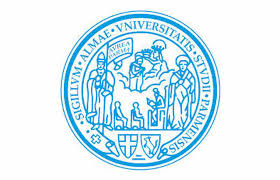
University of Parma, with a community of 30,000 students and around 1,900 faculty and staff members, is the second largest University in Emilia-Romagna and one of the oldest in Europe (1117).
Research activities range from agricultural and food sciences to biotechnologies, from ecology to experimental medicine, including law, economics and arts. The Course catalogue consists of 35 First cycle Degree courses, 38 Second cycle Degree courses (2 held totally in English) and 6 Single cycle Degree courses; all the courses on offer are coordinated by the 18 departments.
Nine departments, in the areas of arts and humanities, economics, law and social studies, medicine and veterinary studies are located in the city centre. The University Campus is located in an area of over 77 hectares and hosts 9 scientific departments, with a number of sports facilities and services for students.
The UNIPARMA team will host the LANDMARK Roundtable 6 in October 2017.
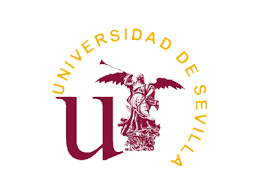
The University of Seville was established in 1505 and it is one of the oldest and largest universities in Spain, with more than 70000 students and around 5000 researchers (around 4500 permanent teaching + research staff). Its total budget is greater than 450 mill € and the annual research budget is about 70 mill €, most from public-competitive grants, which results in more than 1500 JCR journal articles each year. Research in agriculture related field is of particular relevance in the university.






